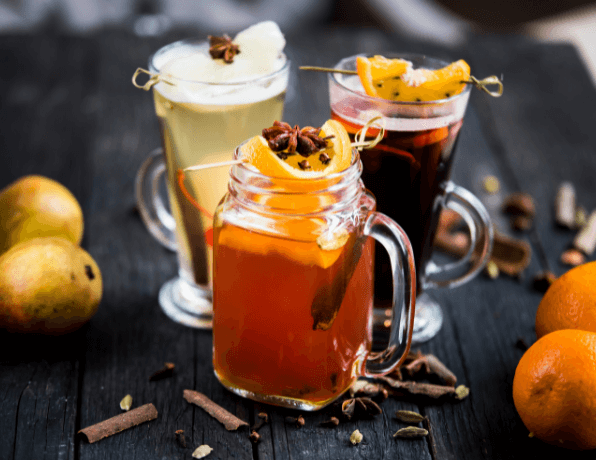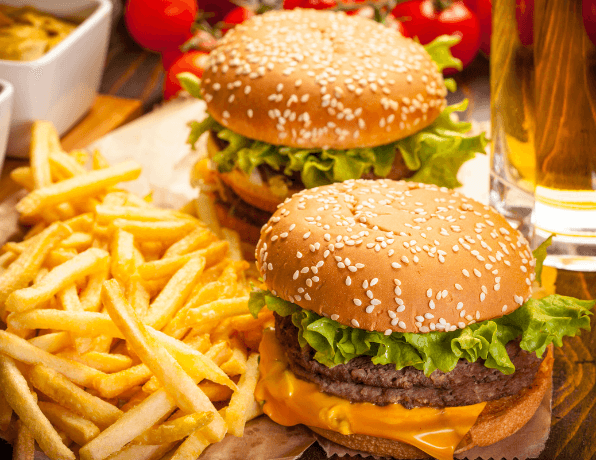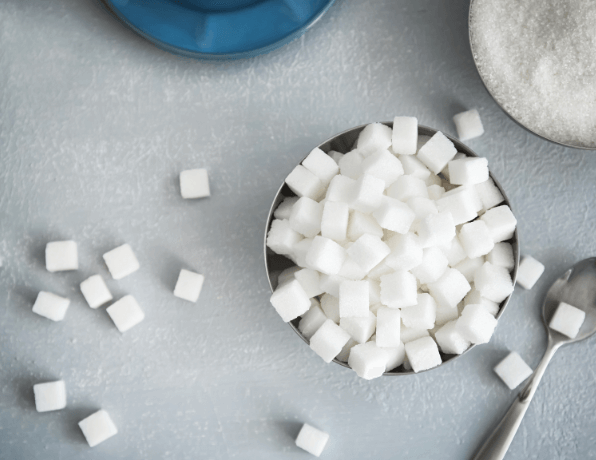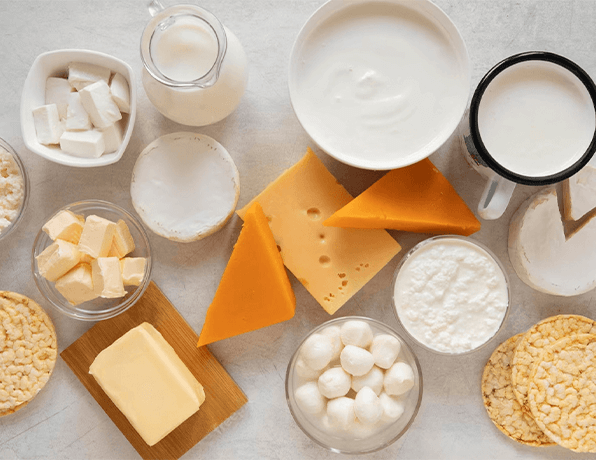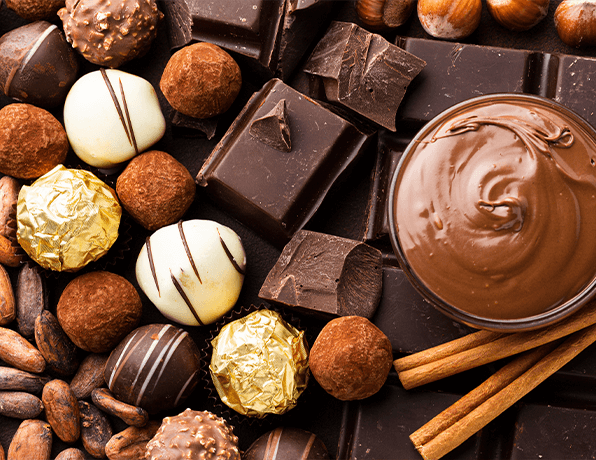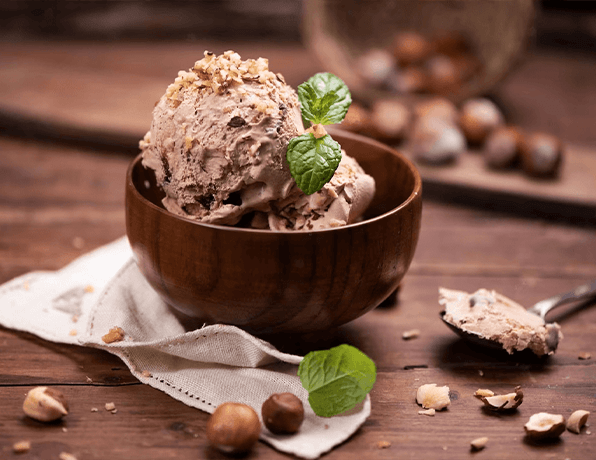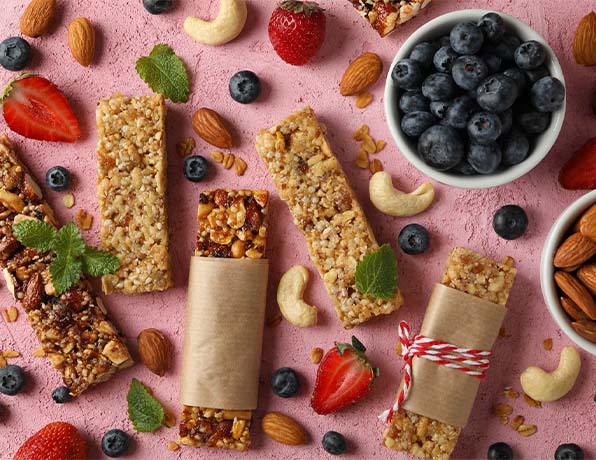Unleashing the Power of Stevia
A Healthier Alternative to Sugar and Artificial Sweeteners
The global stevia-sugar market is growing at a CAGR of 10-15% depending on the region. Japan having replaced about 40% of its sugar consumption with stevia, & globally stevia sugar expected to replace 20% sugar in the next 15-20 years. Food & Beverages industry in Europe & USA too are showing similar trends in reducing sugar consumption & replacing with this healthy and safe natural alternative.
Stevia sweetener is becoming a major Food Ingredient world-wide. Stevia is unique because it’s most valued for what it doesn’t do. It doesn’t add calories & is derived from a plant unlike other sugar substitutes. The active compounds of stevia are steviol glycosides, which has up-to 200-300 times the sweetness of sugar, are heat & pH-stable. This sugar has a negligible effect on blood glucose, which makes stevia attractive & unique.
Sugar consumption, especially from sugary drinks, sweets, confectioneries, etc. is the single largest contributor to the global epidemic of diabetes, obesity, heart disease, high blood pressure and bad cholesterol. Although several artificial sugar substitutes are available such as aspartame, saccharin, sucralose & cyclamates, etc., however many of them have critical concerns over the safety of health. A healthier alternative is stevia-sugar which can replace sugar and artificial sweeteners.

Regulated by Major Food Authorities Worldwide
Global Approval of Stevia as a Sweetener

US Food and Drug Administration (USFDA)

Europe Food Safety Authority (EFSA)

Joint FAO/WHO Expert Committee on Food Additives (JECFA)

Flavours Extracts Manufacturers association (FEMA)

Food Safety and Standard Authority of India (FSSAI)
250-350 times sweeter than cane-sugar
Steviol Glycoside Industrial Applications
Health Benefits of Stevia
A Natural Sugar Substitute for Optimal Well-being
Stevia, as a sugar substitute, can be beneficial in promoting overall health and potentially reducing the risk of certain diseases. While it is not a cure or a guaranteed preventive measure, the use of Stevia instead of sugar can be part of a balanced and healthy lifestyle that may help in the prevention or management of the many conditions.

Diabetes

Obesity and Weight Management

Dental Cavities

Cardiovascular Diseases

Metabolic Syndrome
FAQ's
- +What is Stevia?
- The stevia plant is a small shrub, looks like Tulsi plant that has been used as sweetener for hundreds of years. This is also called “sweet-leaf, sugar-leaf or honey-leaf”. Because of its highly-potent sweetness, stevia is used as a zero- calorie sweetener in a variety of foods and drinks. The best-tasting, purified parts of the stevia plant – stevia leaf extract–is a great alternative to sugar, and it does not raise blood glucose levels, a concern for people with diabetes.
- +Can Stevia replace sugar in the diet?
- Yes. Refined sugar is virtually devoid of nutritional benefits and, at best,represents empty calories in the diet. At worst, it has been implicated innumerous degenerative diseases. Stevia is much sweeter than sugar and has noneof sugar’s unhealthy drawbacks.
- +What is the difference in stevia-powder and stevia leaf extract?
- Stevia powder is made from stevia leaves by grinding/pulverising the dry stevia leaves, and is green in colour. It has no industrial applications.
Stevia leaf extract, is made after industrially processing of dry stevia leaves by extraction and refining to produce high intensity stevia sweetener(HIS) or even stevia-sugar. Technically known as steviol glycosides. It’s a white free flowing powder about 200-350 times sweeter than sugar
- +How much calories are there in Stevia?
- Stevia leaf extract is a high intensity natural sweetener that can be anywherefrom 200-350 times sweeter than sugar. You need to add only very small amountsto achieve the level of sweetness you expect with sugar. That’s part of why stevialeaf extract has no calories—you need very little.
- +How it benefits to health?
- Stevia leaf extract also has no calories due to the way your body metabolizes thesweetener—unlike sugar, stevia leaf extract quickly passes through your digestivetract and is eliminated without being broken down for calories. This can be abenefit for people trying to maintain a healthy weight and lifestyle.
- +Can I use Stevia if I am diabetic?
- Diabetes is a medical condition, which should be monitored and treated by aqualified physician or health care practitioner. However, stevia can be a part of ahealthy diet & diabetes management for anyone with blood sugar problems sinceit does not raise blood sugar levels.
- +Can I combine Stevia with other sweeteners?
- Most certainly. However, sweeteners in general should be used in moderation in abalanced healthy diet. And artificial sweeteners should be avoidedaltogether.
- +Will Stevia harm my teeth?
- Apparently not. Two tests conducted by Purdue University’s Dental ScienceResearch Group have concluded that stevioside is both fluoride compatible and”significantly” inhibits the development of plaque, thus stevia may actually helpto prevent cavities.
- +Can Stevia be used in cooking and baking?
- Absolutely! Industrial research in Japan has shown that stevia and steviosideextracts are extremely heat stable in a variety of everyday cooking and bakingsituations.
- +Does Stevia contain vitamins and minerals?
- Raw herbal stevia contains nearly one hundred identified phytonutrients and volatile oils, including trace amounts of Rutin (from the Callus) and B-Sitosterol(from the leaves). However, in the quantities typically consumed, the nutritivebenefits will be negligible. The extracts of stevia, beingrefined, willcontainfar fewer of these phytonutrients and volatile oils.
- +Will using Stevia in cooking changes food colour?
Green stevia powder would most likely impart color to your food, depending on how much is used. However, stevia leaf extract is mostly white and will generally have no effect on the colour of your food or beverage. The one exception to this rule could be baking, where you may notice colour and performance differences when using stevia leaf extract as an ingredient.
- +Is there any side effect of taking Stevia as sweetener?
Recent study in 2017; it has experienced that consuming stevia bring no change inblood chemistry, cellular function, compensation or appearance.
- +Is there any side effect of taking Stevia as sweetener?
Recent study in 2017; it has experienced that consuming stevia bring no change inblood chemistry, cellular function, compensation or appearance.






